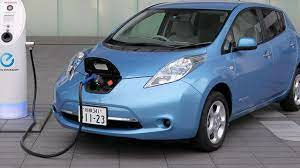Zubair Qureshi Islamabad
Special Assistant to Prime Minister on Climate Change Malik Amin Aslam on Thursday said that introducing modern and environmental-friendly transport system through electric vehicles (EVs) in the country is of unprecedented importance to the efforts for coping with Pakistan’s air pollution woes and making cities clean and green under PM Imran Khan’s world-acclaimed green agenda.
“Introducing EVs in the country’s ailing transport system are pivotal for modernising it and reduce the carbon emissions that contribute to climate change and smog, improving public health and reducing ecological damage,” the PM’s aide highlighted while chairing a high-level meeting of the Inter-Ministerial Oversight Committee On National Electric Vehicles (Ev) Policy held here in the climate change ministry.
He told the meeting participants from various relevant ministries of energy, commerce and automobile manufacturing organisations that while the incumbent government of Prime Minister Imran Khan introduced the National Electric Vehicle Policy (NEVP), all government and non-governmental stakeholders must work hand-in-hand to meet the EV policy targets.
In the policy it approved in November 2019, the government set a target to bring half a million electric motorcycles and rickshaws, along with more than 100,000 electric cars, buses and trucks, into the transportation system in the next five years.
“By 2030 under the policy, the government wants to have about one-third of the vehicles in Pakistan running on electrical energy,” said Malik Amin Aslam, the prime minister’s special assistant on climate change.
“Indeed, the move to electric vehicles is “a win-win initiative for all stakeholders, the public and environment”, Aslam said.
“Transport sector is a major source of environmental pollution and the cause of the global climate crisis.
To solve these issues, there is dire need for making the vehicles on our roads as clean as possible,” Malik Amin Aslam emphasized.
He said, “planet-warming carbon emissions from cars and trucks are not only bad for our planet, they’re bad for our health.
Because air pollutants from gasoline and diesel powered vehicles cause asthma, bronchitis, cancer, and premature death.
The long-term health impacts of localised air pollution last a lifetime, with the effects borne out in asthma attacks, lung damage, and heart conditions, Malik Amin added.










